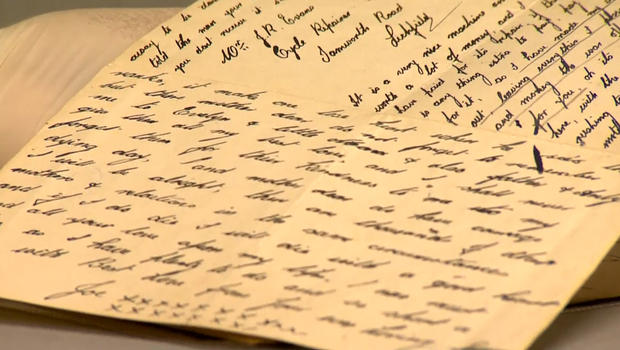Larry McLean has been a resident of Leslieville for over thirty years. In a decision to renovate, he dislodged his front porch to discover a pile of old letters addressed to the Currell family. McLean now seeks to search out the Currell family and provide them with the tattered remnants of a former soldier from WWI.Leslie Currell, author of the letters, wrote the mail in 1917. McLean suspects the carrier must have accidentally dropped it through the cracks in the porch on his way to the front door.
Currell became a soldier with absolutely no experience, and his letters portray the experience of an everyman who shipped off to WWI with little idea of what to expect. He writes about the surrealism of celebrating Christmas at the front, and proclaims guilt, given the high merchant costs of WWI, for the presents he received while at war.
The soldier writes about the Armistice, indicating that he may have actually been alive at the war’s end. Whether or not he returned to his family and whether or not they ever knew of the lost mail are facts unknown. Also unknown is the identity of a woman named Edna, from whom one of the letters was addressed to Currell. She briefly discusses a letter received from Currell and goes on to discuss an intended stay at the hospital.
One of the lost items is not so much a writing, but rather a money order written to Currell’s mother. The order is for a total of $50, which by today’s standards would be somewhere around $600, The Star.com World reports.
The Christmas letter to Currell’s sister Gertrude is possibly the best look at WWI of all the mail that McLean discovered. Currell discusses his attempts to send gifts to his family, unable to find much of anything aside from scarves and handkerchiefs. He also discusses a trip that he and his fellow soldiers apparently took to London to listen to the Christmas bells, though apparently they were “not to ring until the end of the war.”
While he talks about some expected issues from his WWI winter stay, namely the nightly freeze and the inability to enjoy himself, Currell’sletters also show how attached the soldiers stayed to mundane concerns at home. Amidst discussions of Christmas and the Armistice, Currell discusses another sister’s Dictaphone and his hopes that she enjoys it.
Given the love put into the letters, it makes sense that McLean is so keen on finding the Currell family. Should any of them survive, they will no doubt rejoice at one final message from their loved ones. Even if he can only get the mail to the descendants of the intended recipients, they are sure to learn something new about the life their family led during the war.
//
